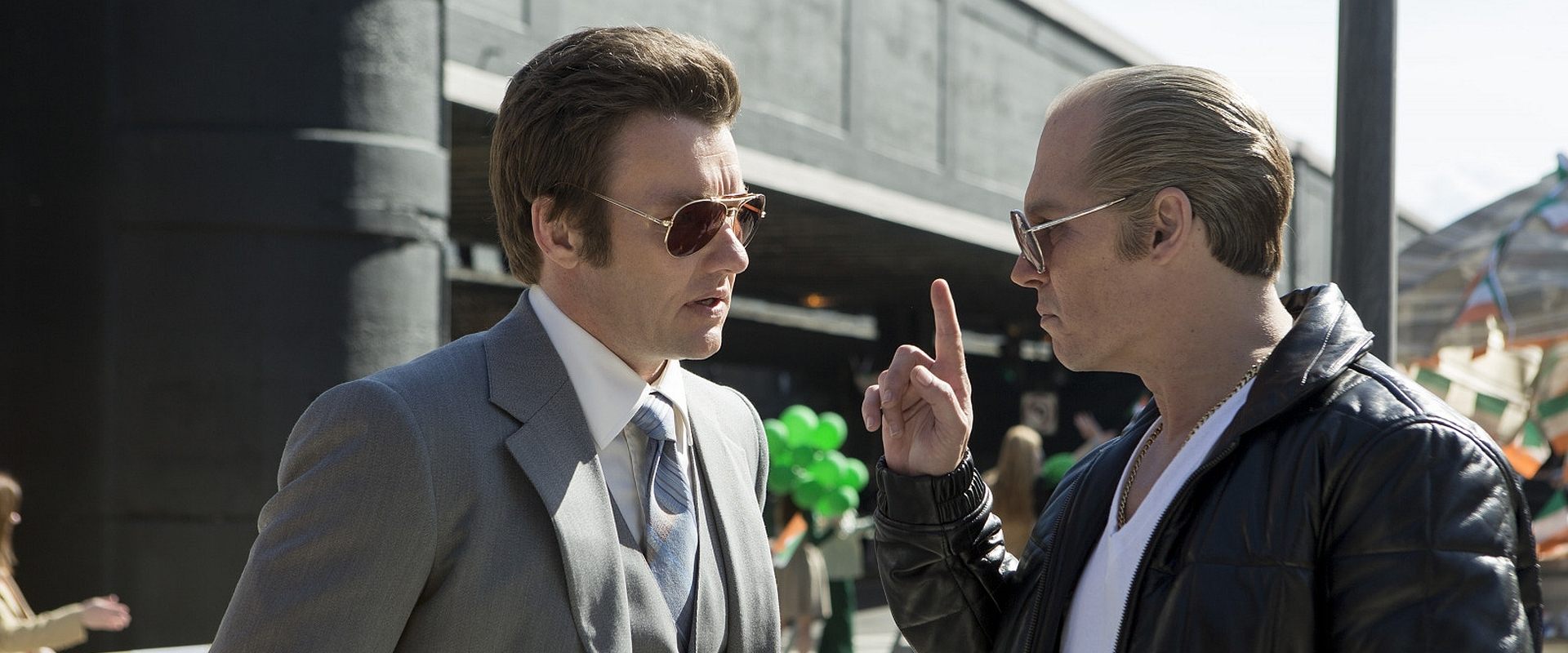There have always been two kinds of gangster movies: the ones that prance through mythology—snappy dialogue, tailored suits, violence delivered with cinematic éclat—and the ones where the filth clings to your coat, where the glamour sours, and the body count is just neighborhood news. Black Mass, Scott Cooper’s dark valentine to the Southie underworld, is very much of the latter breed: all winter breath, sickly dim light, and the chill that comes when you realize the American experiment has bred not just outlaws but monsters in suburban haircuts.
Cooper, whose touch tends toward the elegiac and wounded (Crazy Heart is all morning-after hangover, Out of the Furnace is a hymn to the vanishing blue-collar world), finds in James “Whitey” Bulger a subject both utterly vile and weirdly compelling—a locus of Boston’s historical rot and Hollywood’s appetite for Brobdingnagian antiheroes. Based on Dick Lehr and Gerard O’Neill’s true-crime autopsy, the film settles into a groaning rhythm: part biography, part gothic procedural, occasionally stumbling beneath the weight of all the names, allegiances, government badges, and boys-from-the-old-neighborhood.
Let’s get this out of the way: Johnny Depp, mummified in ice-blond hair and reptilian contacts, gives his best performance in a decade—his Bulger is an apparition, a boogeyman conjured by the city’s deepest anxieties and the FBI’s infinite capacity for self-delusion. It’s acting by subtraction; the twitching, mugging, and Keith Richards cosplay have been banished. Instead, he glides through the movie like bad weather—cold, inevitable, above all inhuman. Depp’s finest trick is to resist the jackhammer “charisma” of gangland icons: when he smiles, even the wallpaper seems to recoil.
But Black Mass is not just Depp’s showcase. Joel Edgerton, as Bulger’s childhood pal turned Bureau stooge, is a twitchy, self-important poltroon whose desperate striving for the old codes—loyalty, brotherhood, twisted pride—lands him in a purgatory of moral rot. The best scenes, and there are a few lulus—especially the ones where Edgerton and Depp circle each other, masters of anxiety—hum with a dread as thick and lingering as cigarette haze. Benedict Cumberbatch, as Billy Bulger, is less a presence than an idea—his performance, clipped and upright, is more convincing in law offices than in the back alleys. The supporting rogues, from Kevin Bacon’s world-weary G-man to Jesse Plemons’ meathead foot soldier, thicken the atmosphere but never quite pierce the central darkness.
Cooper’s direction is best when he’s an anthropologist: the bars and funeral homes, the long shadows on icy stoops, the grotty apartments with their crusted wallpaper—a paean to Boston’s blighted grandeur. The cinematography is so steeped in period authenticity you almost smell the sour whiskey and hear the thud from the corner bookies. The film relishes the textures of decline: the palette is all bruised purples, jaundiced lamplight, and the kind of gray only Boston understands. There are times it feels less like a movie than a haunted house—the set dressing is more alive than some of the stooges who shuffle through it.
And yet, for all its atmospheric obsessiveness, you sense Cooper at an impasse—does he want to burrow into Bulger’s criminal methodology (the rise, the rackets, the sheer magnificent nerve), or does he want to crack open the FBI’s complicity, to anatomize the soul-rot of Edgerton’s conniving company man? The film, nervous and fidgeting, rarely settles for long, often crossing the bridge between psychodrama and procedural only to set up camp in the fog bank. For those unschooled in Boston’s epic of blood and graft, it’s easy to feel adrift, bobbing in the murk.
Still, Black Mass succeeds where lesser crime sagas choke—when it lets its actors and lightboxes conjure the narcotic dread of a world where crime and law hold hands under the dinner table and tell the same bedtime lies to their children. The violence, muted but intimate, is never cathartic—here, murder is a downpayment on next week’s cruelty, another body for the trash truck. The allure of power is as threadbare as the carpet in Bulger’s mother’s house.
If the movie never gives us the full psychoanalytic X-ray of Whitey Bulger—if we emerge knowing more what he did than why—perhaps that’s the point. Evil in Black Mass is not an enigma to be solved; it’s a weather system, a communal failure, a smirk at the final reckoning. The film finds its power in the ache of what’s left unsaid: the cost of loyalty, the fraudulence of justice, and the way a city wears its shame like a winter coat.
See Black Mass not for revelations, but for the way it makes you feel the ash coating every handshake and every memory. In the world Cooper paints, everyone’s hand is dirty. That’s not just Southie—that’s America, too.


